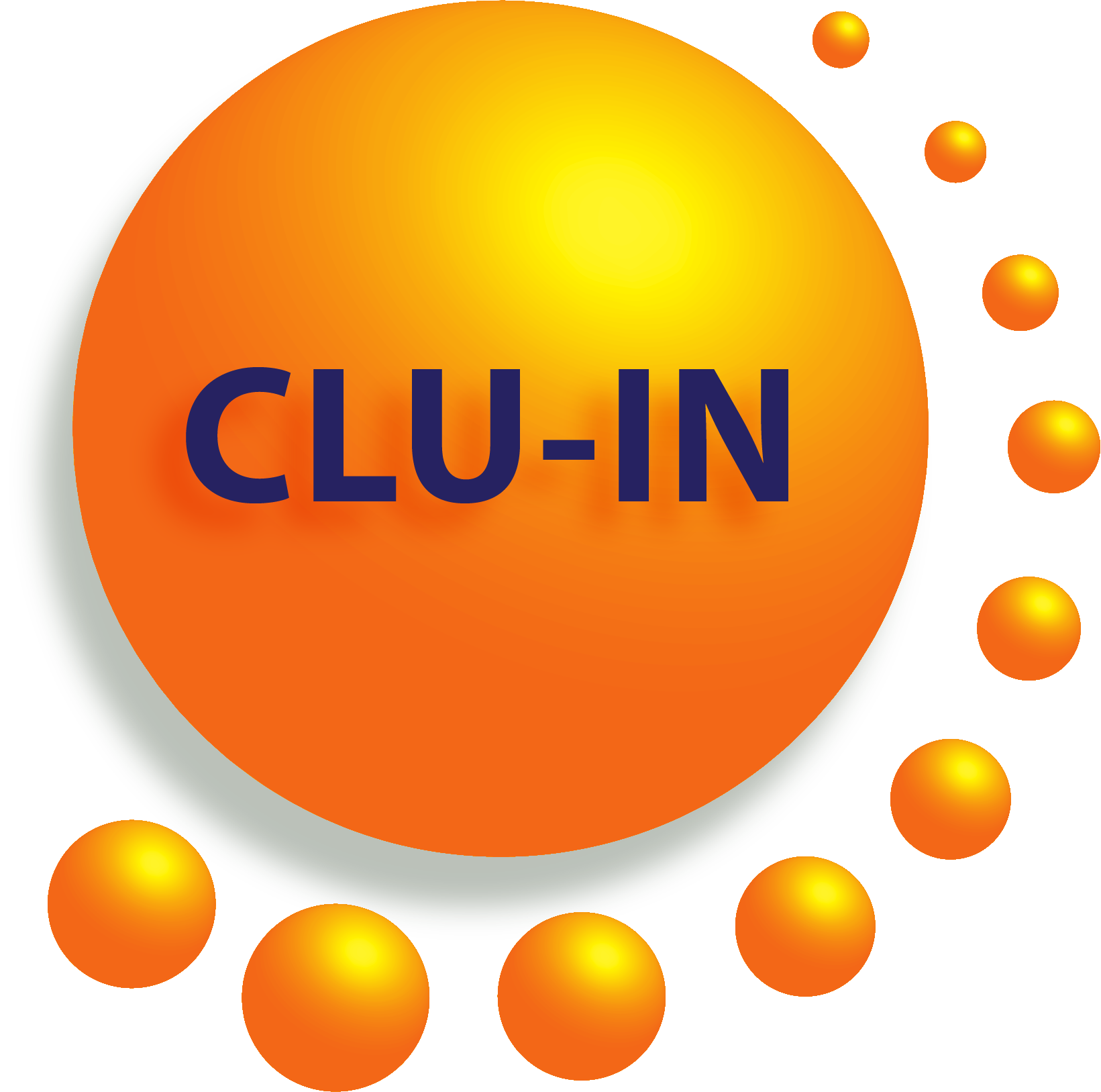SRP Progress in Research Webinar: Session III — Environmental Justice and Emerging Contaminants
Archived: Friday, May 12, 2023
Sponsored by: NIEHS Superfund Research Program
This Progress in Research webinar series will showcase research from 11 new and renewed Multiproject Center grantees, funded by SRP in 2022. These awards were made as part of the P42 grant solicitation RFA-ES-20-014. In the four-part series, awardees will highlight their research projects, accomplishments, and next steps.
The Massachusetts Institute of Technology SRP Center studies N-nitrosamines, a family of carcinogenic chemicals found in water at hazardous waste sites. To address the needs of affected communities, center scientists work to create new technologies to
detect contaminants in the environment, reveal their health impacts, guide effective cleanup, and destroy hazardous chemicals in drinking water. They also aim to identify opportunities for interventions that prevent disease.
The University of California, Berkeley SRP Center works with key stakeholders to better assess the risks of exposure to contaminants, such as arsenic, chromium, per- and polyfluoroalkyl substances (PFAS), and halogenated contaminants. Their goal
is to protect vulnerable communities, understand and account for interactions between mixtures of chemicals, and perform on-site remediation without depleting valuable resources. By using biomedical and engineering approaches, center scientists aim to generate research findings that will help solve these problems in association with community partners and government stakeholders.
The University of Rhode Island SRP Center aims to provide actionable insights, tools, and solutions to tackle PFAS contamination. Researchers at the center seek to understand the transport and transformation of these substances in the environment and develop detection tools to support groundwater remediation. They also work to advance the understanding of PFAS toxicity in the human body to prevent health effects, particularly in children. The center engages new and established partners across multiple sites to execute effective outreach and collaboration.
To learn about and register for the other sessions in this webinar series, please see the SRP website.
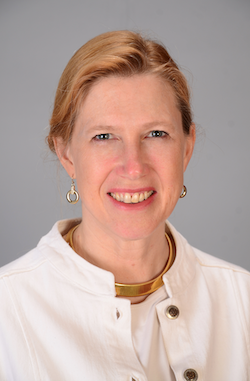 Bevin Engelward, Ph.D., Massachusetts Institute of Technology (bevin@mit.edu)
Bevin Engelward, Ph.D., Massachusetts Institute of Technology (bevin@mit.edu)
Bevin Engelward graduated from Yale University in 1988 and she received her doctoral degree from the Harvard School of Public Health in 1996 where Dr. Leona Samson was her mentor. She began her independent career at MIT in 1997. She is now Professor of Biological Engineering at MIT, and she has held several leadership positions, including being the President of her society (the Environmental Mutagenesis and Genomics Society), Deputy Director of the Center for Environmental Health Sciences at MIT, Director of the MIT Superfund Research Program, and Associate Editor for Environmental and Molecular Mutagenesis. Dr. Engelward has mentored more than 70 undergraduates, graduate students, and postdocs. Dr. Engelward studies how genes and environmental factors affect susceptibility to DNA damage and mutations. Her overriding objective is to do research and to develop tools to help address challenges associated with exposure to DNA damaging agents. Her work spans from basic research to technology development, and she has created novel platforms for visualizing mutant cells within intact tissues and for measuring DNA damage in people's cells. Specifically, the CometChip, NanoCometChip, HepaCometChip, EpiCometChip, MicroColonyChip, and SpheroidChip contribute in various ways to our ability to quantify the genotoxic, epigenetic, and cytotoxic effects of hazardous chemicals. In addition, the Rosa26 Direct Repeat (RaDR) mice harbor a substrate for homologous recombination that gives rise to a fluorescent readout such that cells that have undergone an HR event can be detected within intact tissue. This mouse model has enabled studies of the impact of basic physiological parameters on recombination, as well as studies of exposure biology with an emphasis on DNA damage and its consequences. By developing tools to identify potential carcinogens and by performing basic research to uncover gene-environment interactions that modulate disease risk, Dr. Engelward aims to contribute to a safer environment and to improved public health.
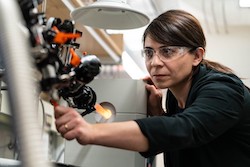 Desiree Plata, Ph.D., Massachusetts Institute of Technology (dplata@mit.edu)
Desiree Plata, Ph.D., Massachusetts Institute of Technology (dplata@mit.edu)
Desirée Plata's research seeks to maximize technology's benefit to society while minimizing environmental impacts in industrially important practices through the use of geochemical tools and chemical mechanistic insights. Plata earned her doctoral degree in Chemical Oceanography and Environmental Chemistry from the Massachusetts Institute of Technology and the Woods Hole Oceanographic Institution's Joint Program in Oceanography (2009) and her bachelor's degree in Chemistry from Union College in Schenectady, NY (2003). Plata is an NSF CAREER Awardee (2016), an Odebrecht-Braskem Sustainable Innovation Awardee (2015), a two-time National Academy of Engineers Frontiers of Engineering Fellow (2012, 2020), a two-time National Academy of Sciences Kavli Frontiers of Science Fellow (2011, 2013), a Caltech Resnick Sustainability Fellow (2017), and winner of MIT's Junior Bose Teaching Award (2019) and Edgerton Faculty Achievement Award (2021). Having previously served as John J. Lee Assistant Professor of Chemical and Environmental Engineering at Yale University and Associate Director for Research at the Center for Green Chemistry and Green Engineering at Yale, Plata is now Associate Professor of Civil and Environmental Engineering at MIT. Plata is co-founder of Nth Cycle.
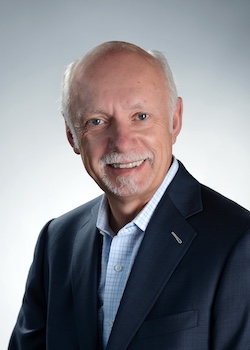 Martyn Smith, Ph.D., University of California, Berkeley (martynts@berkeley.edu)
Martyn Smith, Ph.D., University of California, Berkeley (martynts@berkeley.edu)
Martyn Smith is a Professor of the Graduate School in Environmental Health Sciences and the Kaiser Chair of Cancer Epidemiology in the School of Public Health at Berkeley. Since 1987, he have served as Director and Principal Investigator of the UC Berkeley Superfund Research Program. His research is focused on examining the complex relationships between environmental exposures and disease risk and health effects, including cancer, diabetes and other chronic diseases. Dr. Smith have used a molecular epidemiology approach using state of the art biomarkers in well-designed epidemiological studies and human cell culture model systems. He advanced the concept of carcinogens and other toxic chemicals having intrinsic properties known as ‘key characteristics' which is now used as the approach to incorporate mechanistic data into hazard and risk assessment by IARC, US EPA, NTP and CalEPA. Most recently, he has begun to apply machine learning and other computational approaches to toxicological questions with colleagues in Chemistry and Biostatistics. Initially, Dr. Smith and team used molecular docking to study the interactions between environmental chemicals and the androgen receptor and have since examined the interactions of ~6,000 PFAS and other chemicals with multiple nuclear receptors and have developed machine learning approaches to predict these interactions and find potential endocrine disruptors.
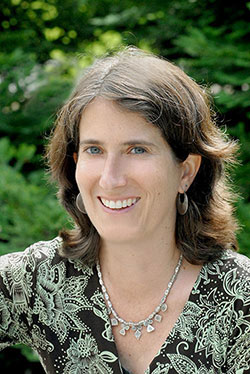 Rachel Morello-Frosch, Ph.D., University of California, Berkeley SRP Center (rmf@berkeley.edu)
Rachel Morello-Frosch, Ph.D., University of California, Berkeley SRP Center (rmf@berkeley.edu)
Rachel Morello-Frosch, Ph.D., is a Professor in the Department of Environmental Science, Policy and Management and the School of Public Health at UC Berkeley. For over 20 years, her research has examined social determinants of environmental health among diverse communities with a focus on inequality, psychosocial stress and how these factors interact with environmental chemical exposures to produce health inequalities. In collaboration with communities and scientists, Dr. Morello-Frosch has also developed science-policy tools for assessing the cumulative impacts of chemical and non-chemical stressors to improve regulatory decision-making and advance environmental justice. Her research is supported by NIH, NSF, Cal-EPA, the California Breast Cancer Research Program and private foundations.
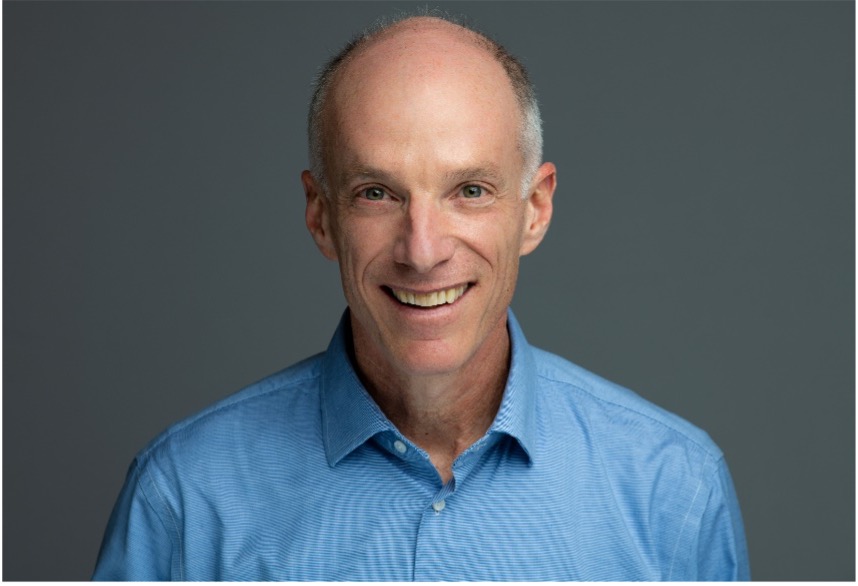 David Sedlak, Ph.D., University of California (UC), Berkeley (sedlak@berkeley.edu)
David Sedlak, Ph.D., University of California (UC), Berkeley (sedlak@berkeley.edu)
David Sedlak, Ph.D., is the Plato Malozemoff Professor in the Department of Civil & Environmental Engineering at UC Berkeley where he is the Co-Director of the Berkeley Water Center and an investigator in UC Berkeley’s Superfund Research Program. Sedlak is a member of the National Academy of Engineering and recipient of numerous awards including the Paul Busch Award for Innovation in Applied Water Quality Research and the Clarke Prize for Excellence in Water Research. He is also the author of "Water 4.0: The Past, Present and Future of the World’s Most Vital Resource".
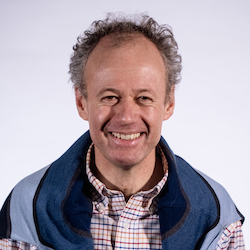 Rainer Lohmann, Ph.D., University of Rhode Island (rlohmann@uri.edu)
Rainer Lohmann, Ph.D., University of Rhode Island (rlohmann@uri.edu)
Rainer Lohmann is the Director of the University of Rhode Island STEEP Superfund Research Center which focuses on Sources, Transport, Exposure and Effects of PFAS, and Professor of Oceanography at the University of Rhode Island's Graduate School of Oceanography. His group conducts research into the sources, transport, and bioaccumulation of anthropogenic pollutants, often relying on the use of passive samplers. Other than PFASs, his research covers dioxins, PCBs, legacy pesticides and emerging contaminants. Lohmann initiated a global effort to monitor organic contaminants in the waters of the world, termed AQUA-GAPS, which started field trials in 2016. He was trained in Chemical Engineering at the Ecole Européenne des Hautes Etudes des Industries Chimiques de Strasbourg (France) and got his Ph.D. in Environmental Science from Lancaster University (UK). Lohmann serves as Editor for Environmental Toxicology and Chemistry, and is on the Editorial Boards of Environmental Science & Technology and Environmental Science & Technology Letters, among others.
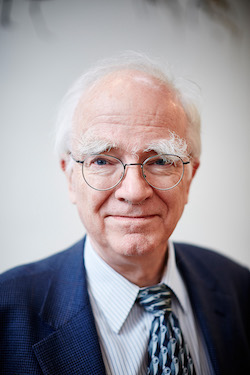 Philippe Grandjean, M.D., University of Rhode Island (pgrand@uri.edu)
Philippe Grandjean, M.D., University of Rhode Island (pgrand@uri.edu)
Philippe Grandjean is an MD, DMSc and dr.h.c, he is Research Professor at URI and also part-time Professor of Environmental Medicine at the University of Southern Denmark, from where he conducts epidemiology studies and PFAS analyses of human samples. Dr. Grandjean conducts international research to assess adverse health effects that are linked to exposures to environmental chemicals, especially those that occur prenatally during highly vulnerable early life stages.
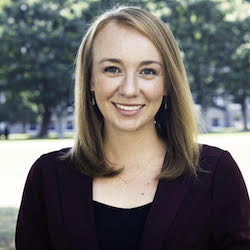 Emily Diamond, Ph.D., University of Rhode Island (diamond@uri.edu)
Emily Diamond, Ph.D., University of Rhode Island (diamond@uri.edu)
Emily Diamond, Ph.D., is an Assistant Professor of Environmental Communication in the departments of Communication Studies and Marine Affairs at the University of Rhode Island. She researches strategies to increase communication effectiveness of environmental challenges in impacted communities and co-leads the Community Engagement Core of the STEEP Superfund Research Project. Dr. Diamond received her Ph.D. in Environmental Policy from Duke University in 2019, where she studied how communication and identities interact in shaping environmental attitudes, particularly on climate change. Prior to graduate school she also worked in strategic communication consulting and public relations.
Moderator:
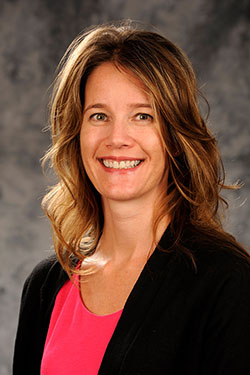 Michelle L. Heacock, Ph.D., NIEHS Superfund Research Program (heacockm@niehs.nih.gov)
Michelle L. Heacock, Ph.D., NIEHS Superfund Research Program (heacockm@niehs.nih.gov)
Michelle Heacock, Ph.D., is currently serving as the acting branch chief of the Hazardous Substances Research Branch, and is a health science administrator where she oversees Superfund Research Program (SRP) grants that span basic molecular mechanisms of biological responses from exposures to hazardous substances, movement of hazardous substances through environmental media, detection technologies, and remediation approaches. Dr. Heacock received her doctorate from Texas A&M University for her work on the interplay between DNA repair proteins and telomeres. Her postdoctoral work was conducted at NIEHS where she studied the DNA repair pathway, base excision repair. She has been with the NIEHS since 2007.
Webinar Slides and References:
-
 Slide Presentation for Massachusetts Institute of Technology SRP Center (9.14MB/PDF)
Slide Presentation for Massachusetts Institute of Technology SRP Center (9.14MB/PDF)
-
 Slide Presentation for University of California, Berkeley SRP Center (3.70MB/PDF)
Slide Presentation for University of California, Berkeley SRP Center (3.70MB/PDF)
-
 Slide Presentation for University of Rhode Island SRP Center (4.21MB/PDF)
Slide Presentation for University of Rhode Island SRP Center (4.21MB/PDF)
Additional Resources:
 NIEHS Superfund Research Program Fact Sheet
NIEHS Superfund Research Program Fact Sheet - NIEHS "Limited Competition: Superfund Hazardous Substance Research and Training Program (P42 Clinical Trial Optional)” funding opportunity, RFA-ES-23-001.
- NIEHS Superfund Research Program Funding Opportunities webinar on May 15, 2023, from 12-1 pm EDT.
- Email srpinfo@mail.nih.gov to be added to the SRP Risk e-Learning listserv.
Help & FAQs
- Frequently Asked Questions
- Content Questions?
Call Mali Velasco Delgado at 919-794-4708 or mali.velascodelgado@nih.gov - Technical Problems?
Leave us a comment - Cancel Your Registration
- My Participation Records
- CEU Credits and PDHs
Zoom Resources
This seminar will be delivered through Zoom. Participants are encouraged to update to the latest version of the Zoom application for the best experience. If you are unable to install the Zoom application, most functions will be available if you join just using a modern web browser such as Chrome, Edge or Firefox. We strongly encourage you to run the Zoom Meeting Test prior to attending this seminar. Technical support on the day of the seminar will be very limited and subject to significant delays.
Rehabilitation Act Notice for Reasonable Accommodation
It is EPA's policy to make reasonable accommodation to persons with disabilities wishing to participate in the agency's programs and activities, pursuant to the Rehabilitation Act of 1973, 29 U.S.C. 791. Any request for accommodation should be made to Mali Velasco Delgado at 919-794-4708 or mali.velascodelgado@nih.gov, preferably one week or more in advance of the seminar, so that EPA will have sufficient time to process the request. EPA would welcome specific recommendations from requestors specifying the nature or type of accommodation needed. EPA welcomes specific recommendations from requestors specifying the nature or type of accommodation needed. Please note that CLU-IN provides both alternate phone call-in options and closed captioning for all webinars, and requests for these specific accommodations are not necessary.
Rehabilitation Act Notice for Reasonable Accommodation
It is EPA's policy to make reasonable accommodation to persons with disabilities wishing to participate in the agency's programs and activities, pursuant to the Rehabilitation Act of 1973, 29 U.S.C. 791. Any request for accommodation should be made to Mali Velasco Delgado at 919-794-4708 or mali.velascodelgado@nih.gov, preferably one week or more in advance of the webinar, so that EPA will have sufficient time to process the request. EPA would welcome specific recommendations from requestors specifying the nature or type of accommodation needed. EPA welcomes specific recommendations from requestors specifying the nature or type of accommodation needed. Please note that CLU-IN provides both alternate phone call-in options and closed captioning for all webinars, and requests for these specific accommodations are not necessary.
Webinar Recording
By participating in this CLU-IN webinar, you automatically agree to authorize recording of audio and visual content presented during this live event and consent to subsequent use of this recording in the public domain by the U.S. Environmental Protection Agency. This recording may include questions, comments and poll responses provided by you during the live event in addition to your name, voice, image or likeness. This recording will be made available after the conclusion of the live event as part of the CLU-IN webinar archives, and will remain available indefinitely. If you do not wish to consent to the recording, please do not join the live event, and contact Jean Balent at 202-566-0832 or balent.jean@epa.gov to discuss your concerns.
Content Disclaimer
This webinar is intended solely to provide information to the public. The views and opinions expressed as part of this webinar do not necessarily state or reflect those of the U.S. Environmental Protection Agency. It is not intended, nor can it be relied upon, to create any rights enforceable by any party in litigation with the United States, or to endorse the use of products or services provided by specific vendors. With respect to this webinar, neither the United States Government nor any of their employees, makes any warranty, express or implied, including the warranties of merchantability and fitness for a particular purpose, or assumes any legal liability or responsibility for the accuracy, completeness, or usefulness of any information, apparatus, product, or process disclosed, or represents that its use would not infringe privately owned rights.

